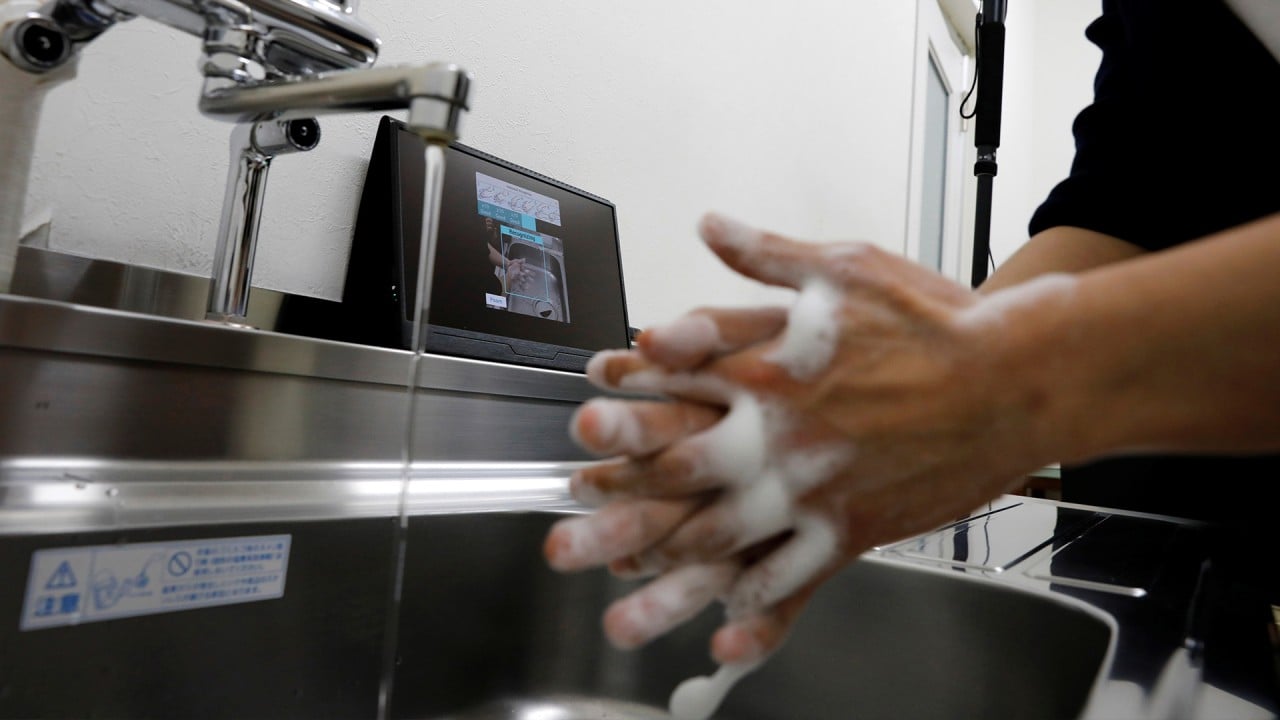
China makes prototype fridge able to reach quantum computing temperatures
- Almost ‘absolute zero’ device will help develop sector needing extremely cold conditions
- Home-grown means another move closer to nation being technologically self-reliant

01:28
Japanese AI checks workers for proper handwashing amid coronavirus pandemic
Ji Zhongqing, a research fellow at the academy, told Science and Technology Daily on Tuesday: “The team will continue to improve technology so that a new generation of refrigerators under construction will reach the quality of imported products in terms of usability and stability.”
Xinhua, also on Tuesday, said the machine can realise an ultra-low temperature just 0.01 degrees Celsius higher than absolute zero, which is -273.15 degrees Celsius. Absolute zero is the lowest possible temperature, where nothing can be colder.
Hack-proof network closer after China’s quantum communication experiment
Qubits, or the central part of quantum computers, must be kept very cold inside a special refrigerator near the temperature where atoms stop moving. China has invested huge amounts in quantum computing.
In June the new device was tested to ensure it could operate continuously for a long period of time at about -273.14 degrees Celsius, according to the Chinese Academy of Sciences. It said it is the first locally developed device to reach such ultra-cold temperatures.
Ji said the prototype does not need liquid helium to bring the temperature down, unlike traditional refrigerators, and has more internal space and can run for longer with easy operation controls and maintenance. Fridges that do not need liquid helium have become much more popular in recent years, he added.

01:33
Meet Aidam, the Chinese robot who can help you ace mathematics
Despite that, China opened its first large-scale helium plant last year in its effort to reduce its reliance on imports for hi-tech products.
Helium is a noble gas, meaning it is stable and unlikely to react with other elements, even in an extreme environment. It is lightweight, colourless, and a rare resource.
Nearly all helium used in China – whether to pump fuel for its huge Long March 5 rocket, to protect metal during welding, to produce laser light, or to create the super-clean environment needed to make computer chips – comes from abroad, mostly the United States or US-owned facilities in other countries.
Denver Li Danfeng, an assistant professor with the physics department at City University of Hong Kong, said the new cooler was a big step forward. “It not only promises independence of the helium supply, but also places China as a key player in the neck-and-neck race in future quantum computing and low-temperature technologies,” Li said.
“For a long time, the techniques that are key to manufacturing and operating quantum computers have been largely developed and mastered by Western countries and the market is mostly occupied by them,” he said. “This breakthrough [in China] … has solved a bottleneck issue, providing the foundation to independently build up helium-free quantum computers.”

